Deleted Scenes: The opiate of the people (Daniel 5)
A Note From Craig...
Karl Marx is having a moment, isn’t he? I mean, his ideas have been around for 150 years or so, and multiple nations tried adopting those ideas as the organizing principle for their politics. The results weren’t great- a commonly cited figure is that Communist governments killed about 100 million of their own citizens in the 20th century. Regardless, after the fall of the Soviet Union in 1991, it looked like Marxism had been disposed of as a viable political idea. An American scholar named Francis Fukuyama famously wrote we had reached “the end of history as such: That is, the end-point of mankind's ideological evolution and the universalization of Western liberal democracy as the final form of human government." The final form. We'll never be tempted to go a different direction. Ha! Not so fast, Francis! It turns out Marxism wasn’t dead after all! Everywhere you look, major leaders in the Western world are promoting Marx’s ideas.
There’s one idea of his that I’m especially interested in, though. That is Marx’s famous phrase that religion is the opiate of the people- opiate referring to a drug that has a numbing effect on people. Marx’s problem was that religion kept people from being fully aware of how oppressed they were, which prevented them from rising up against the elites of society in a glorious revolution. Marx saw that religion- presumably Christianity in particular- enabled people to deal with adverse circumstances and to find contentment through eternal hope. That’s no good if you want to rile people up and get them passionately committed to your revolution. It’s an interesting thought! However, I think the historical fruit that’s come from arousing Marxist political revolutions should scare us off that idea.
There’s one idea of his that I’m especially interested in, though. That is Marx’s famous phrase that religion is the opiate of the people- opiate referring to a drug that has a numbing effect on people. Marx’s problem was that religion kept people from being fully aware of how oppressed they were, which prevented them from rising up against the elites of society in a glorious revolution. Marx saw that religion- presumably Christianity in particular- enabled people to deal with adverse circumstances and to find contentment through eternal hope. That’s no good if you want to rile people up and get them passionately committed to your revolution. It’s an interesting thought! However, I think the historical fruit that’s come from arousing Marxist political revolutions should scare us off that idea.
What we saw in Daniel 5, however, was an example of how sin and idolatry have a devastatingly numbing effect.
We've got Belshazzar of Babylon throwing a wild party, praising gods of his own creation while mocking the one true God. He’s got anyone who is anyone there with him, drinking the night away. While they party hard, they’re totally unaware of the danger they’re in. That night, the Persian forces were entering into Babylon under the city walls to overthrow the city. Belshazzar has no clue about this until a really spooky hand writes out a warning on the wall of his banquet hall. I mentioned on Sunday that one of the reasons Belshazzar might have been throwing this party was because he had heard that his father King Nabonidus was on the run, leaving him as de facto king. If there’s any truth to that, just think about how his desire for power had so corrupted him that he was numb to any kind of grief. That numbness in Belshazzar extended to his awareness of God’s truth. Daniel says in verse 22 that he should have known better than to mock God in this way. Belshazzar had access to the stories of Nebuchadnezzar’s humbling, but he ignored them. Sinful pride and greed and idolatry had numbed him to the truth.
You see, sin makes us numb to God's voice and His truth. On the other hand, Christian faith is anything but an opiate. Instead, according to the Bible, walking closely with the Lord makes us more sober, more awake, more alert than anything else possibly could. The more we walk with Christ in obedience, the more we are able to see and experience life as we are meant to, as it really is. When Paul writes to the Thessalonians, this is what he reminds them of:
You see, sin makes us numb to God's voice and His truth. On the other hand, Christian faith is anything but an opiate. Instead, according to the Bible, walking closely with the Lord makes us more sober, more awake, more alert than anything else possibly could. The more we walk with Christ in obedience, the more we are able to see and experience life as we are meant to, as it really is. When Paul writes to the Thessalonians, this is what he reminds them of:
“So then, let us not be like others, who are asleep, but let us be awake and sober. For those who sleep, sleep at night, and those who get drunk, get drunk at night. But since we belong to the day, let us be sober, putting on faith and love as a breastplate, and the hope of salvation as a helmet.” (1 Thessalonians 5:6-8)
I’m not buying Marx’s idea. And I definitely don’t want to follow in Belshazzar’s footsteps. I want to belong to the day. I want to be awake and alert. And I believe the best way to do that is to stay as close to Jesus as I possibly can, since he is the light of the world.
- Craig

Recent
Sabbatical Reflection 2: Familia Sagrada, Amphitheater, and Alcossebre.
February 3rd, 2026
Sabbatical Reflection 1: Salt Spring and Mexico.
January 21st, 2026
What we talked about at the congregational meeting
November 26th, 2025
What October 31 is all about
October 27th, 2025
What are your gifts?
September 24th, 2025
Archive
2026
2025
January
February
March
April
May
July
August
October
2024
January
February
March
April
May
June
July
August
September
October
Deleted Scenes: Why Paul wrote a letter to a church he didn’t knowDeleted Scenes: What's Your Constant Prayer? Romans 1:8-17Deleted Scenes: The Eye of the Tiger. 2 Chronicles 20:1-30Deleted Scenes: Strength when speaking a challenging truth. Romans 1:18-32Deleted Scenes: What October 31 is all about. Romans 2:1-16
November

1 Comment
Religion is defined on Wikipedia as is a range of social-cultural systems, including designated behaviors and practices, morals, beliefs, worldviews, texts, sanctified places, prophecies, ethics, or organizations, that generally relate humanity to supernatural, transcendental, and spiritual elements. Oxford Dictionary lists a pursuit or interest to which someone ascribes supreme importance, providing an example: "consumerism is the new religion". There is no shortage of belief systems; I would add the so-called Social Justice movement and the Climate Crisis to the list of religions with the greatest number of adherents. So, religion can be as useful and powerful as an opiate to distract people from reality and get them rise up with the elites in a glorious new revolution. Unfortunately, that new revolution is the same as the old revolution and will lead humanity back into the same hopeless pit as previous Marxist ideology led us. Christian faith is smelling salts, helping us regain consciousness from the lull of this world. By the way, I heard this week that the word religion is used only four times in the bible and only once in a positive sense, when it is undefiled by man.